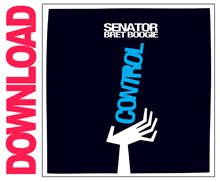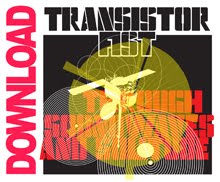
Hip Hop and Philosophy (Rhyme 2 Reason)
Edited by Derrick Darby and Tommie Shelby, 2005
This loose philosophy collection illustrates how hip-hop has wholly influenced American culture. Authors, screenwriters and visual artists have created a multitude of works the last few years from an unyielding hip-hop perspective. This book shows its impact on academia.
Edited by Derrick Darby and Tommie Shelby, 2005
This loose philosophy collection illustrates how hip-hop has wholly influenced American culture. Authors, screenwriters and visual artists have created a multitude of works the last few years from an unyielding hip-hop perspective. This book shows its impact on academia.
Blossoming from hip-hop’s Golden Era, “Hip Hop and Philosophy” shows the impact that artists like KRS-ONE and Chuck D had on a generation of today’s educators and thinkers. The affected use the empowerment handed to them by the culture’s forbearers to influence public policy, ethics, law and thought.
The book compiles 17 essays by the country’s top young philosophy professors. The writers have written key works on race, human rights and philosophy, but here they focus on how hip-hop relates to ancient ideas and philosophical constructs.
Major works like this show how interwoven hip-hop is with contemporary ideology, but can also demean the culture by narrowing it into a particular style as opposed to an underlying understanding of things. These philosophers grew up with the culture and don’t necessarily differentiate between what is hip-hop and what is not. But why does the cover have to use a graffiti piece and wack “tag” fonts to sell itself as hip-hop? Why do the editors write in slang to prove their credibility? Are these compulsory tenants of hip-hop, or has hip-hop grown beyond its stylistic margins?
Wait. I’m thinking too much, but that’s what philosophy is supposed to do. And in that respect, “Hip Hop and Philosophy” succeeds. The kids that used to watch park jams from their mom’s fifth-floor window and the b-boys that ironed their Lees into crisp tendrils draped above suede Clydes are now piloting all kinds endeavors.
Sadly, though, the essays are too similar in reference. While each writer has a distinct theme, they all seem to use the same elements as a basis for their arguments, like hip-hop ended with BDP’s final demise around the time of their graduations. The book is filled with Chuck D-isms, NWA references and Poor Righteous Teachers righteousness alongside a bit of “back-in-the-day” tenderness. That Golden Era revelry sits with contemporary references as blasé as Nelly and Jay-Z.
In the end, the book lacks hip-hop’s contemporary contributions. Though the writers perform exceptionally, I feel their comments would benefit from a few nights at an underground hip-hop event.
-Bret Duchen





No comments:
Post a Comment